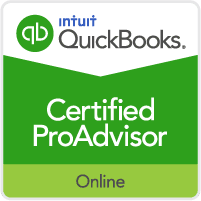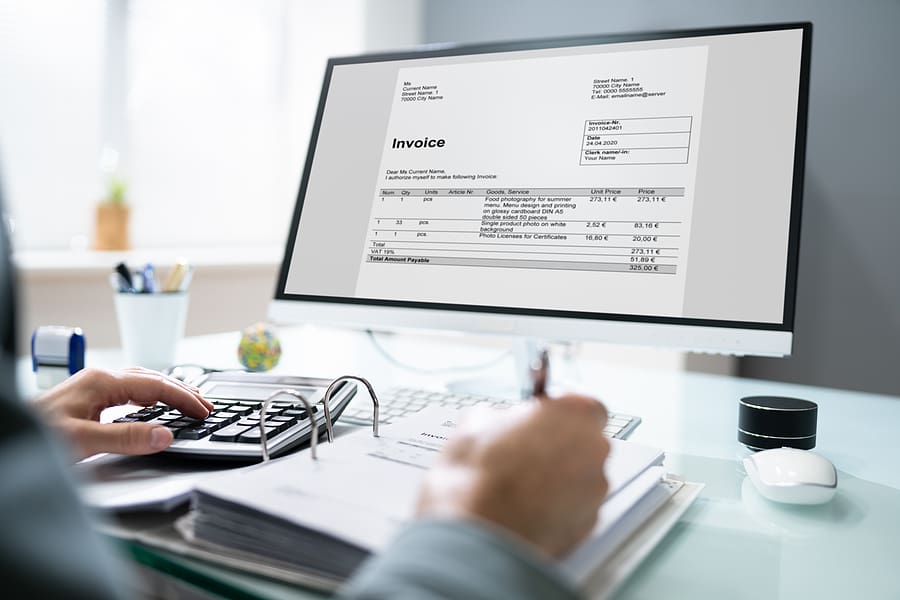Breaking Boundaries, Breaking Business: Why You Can’t Afford to Blend Your Personal and Business Accounts
Mixing business and personal accounts as a business owner is unwise because it blurs the line between your professional and personal finances. This can lead to confusion in tracking expenses and income, resulting in messy bookkeeping and potential tax complications during tax season. Separating accounts from the beginning ensures a clear understanding of your business’s financial health, provides legal protection for your personal assets, and establishes a solid foundation for future business growth.

Benefits of Financial Clarity
You cannot get a good picture of your business’s financial health if your personal accounts are in the mix. Separating personal and business finances creates financial clarity by ensuring a distinct and organized view of your income, expenses, and overall financial health. Here’s how the separation contributes to this clarity:
- Clear Transaction Tracking: When personal and business transactions are mixed in a single account, it becomes challenging to differentiate between personal expenses and business expenses. By separating accounts, each transaction can be categorized appropriately, making it easier to track and analyze your business expenses.
- Accurate Profit and Loss Reporting: With separate accounts, you can generate accurate profit and loss statements easily. This is crucial for assessing your business’s financial performance.
- Budgeting and Forecasting: Separate accounts enable you to allocate funds for various business needs, track spending against these budgets, and make adjustments as necessary. Understanding your business’s financial situation will also allow you to accurately forecast and plan for growth.
- Tax Preparation and Compliance: Keeping separate accounts for personal and business transactions simplifies the process of calculating business-related deductions, credits, and expenses. This way you can streamline your tax preparations and ensure compliance with tax regulations, reducing the risk of costly errors or red flags that can lead to audits.
- Business Credit and Financing: Financial institutions and investors often assess the financial health of a business before extending credit or loans. Clear separation of your accounts demonstrates your ability to manage your business’s finances effectively, which can enhance your eligibility for favorable credit terms and financing options.
- Auditing and Reporting: If your business undergoes an audit or needs to provide financial reports to stakeholders, having clean and organized financial records in separate accounts will simplify this process. You can readily provide accurate information without having to sort through mixed personal and business transactions first.
Maintaining Legal Protection for You and Your Business
By creating a corporate structure, you will protect your personal assets from business debts, losses, and even potential lawsuits. With a business loan or line of credit, you are leveraging the business assets, not your personal assets. This is very risky in personal finance, but considered a good strategy when starting a business. If you mingle your accounts, your personal assets could be in jeopardy if your business runs into financial or legal trouble.
Handling Taxes
As a business owner, you can take advantage of tax deductions, but you need clear records to avoid potential audits and problems with the IRS. Mixing accounts can lead to missed deductible expenses and a higher tax burden – not something you need when you are working on maximizing profits and maintaining a consistent cash flow. If you are faced with an audit, having your personal and business records separate and well-maintained will make the audit process far less stressful.
Blending Accounts Can Create Cash Flow Issues
Cash flow is top of mind for any business owner. In the beginning, expenses can exceed profits and you may find yourself in the red. This is where many new business owners are tempted to jump in and save their business with their personal accounts, but there are better options. Using a personal credit card or loan can affect your personal credit and make it harder to determine your business performance. The ultimate goal to manage the cash flow of your business is to create a cash reserve, providing the cushion your business will need, especially in the first few years. When you muddy that cash reserve with your personal accounts, you will not have a clear cash reserve to draw from. Personal withdrawals can be mistaken for business expenses, and you may find yourself struggling on both sides of the dollar.
Minimize Financial Analysis Challenges
An accurate financial analysis is essential in business-you can’t gauge true business performance without it. When you are considering a business loan, business line of credit, or reaching out to investors who can help you grow your business, you want to be able to present your financial analysis accurately. If your personal accounts are tied in with your business, you will not only have a difficult time demonstrating the health of your business, but you may hurt your reputation in a professional setting. This is your business, not a hobby.
Streamline Your Business Finances
Running a business is a worthy challenge. Mingling your business accounts with your personal accounts is not ideal and can actually hinder business growth. If you’re just getting started, it’s highly recommended that you establish a business account, get a business credit card specifically for business purposes, and put in the time and effort needed to keep accurate but separate financial records. If you’ve been running your business with your personal assets in the way, you may know why you shouldn’t, but the time and effort needed to separate them might be causing you to ignore the issue for now.
Maintaining a clear distinction between business and personal accounts is important and can directly affect the success and professionalism of your current and future business ventures. The separation of personal and business finances ensures accurate bookkeeping, minimizes tax complexities, and fosters trust among stakeholders and lenders. By upholding this financial boundary, you can gain a precise understanding of your business’s performance, safeguard personal assets from business liabilities, and lay the groundwork for sustainable business growth. Just as a well-organized workspace enhances productivity, a well-structured financial setup is a cornerstone for a thriving business.
The advantages of hiring a professional bookkeeper for your business are significant. From maintaining accurate financial records to unlocking valuable insights for informed decision-making, an experienced bookkeeper can play an invaluable role in the success of any business. To learn more about how In Balance Solutions can help you streamline your financial processes, contact us right away.






